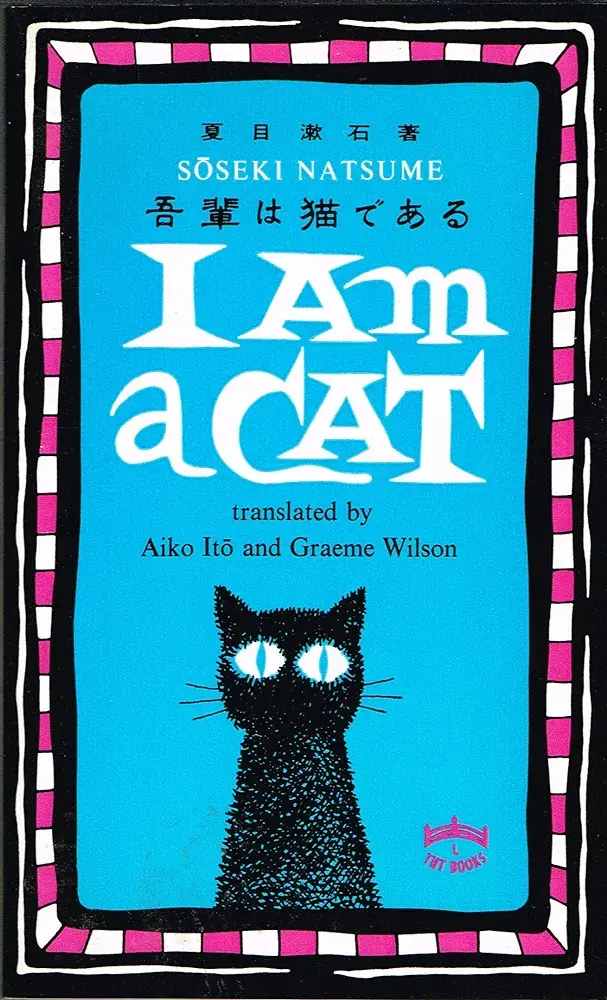Sorry, I’m gonna be that person.
*What. It should say
What it feels like.Thanks English is not my native language.
Just for the sake of information, the two common ways to put this in English are “How it feels” and “What it feels like”. The former phrase is just descriptive, so it doesn’t need the “like” at the end. The latter phrase is comparative to another thing, so it needs the like. Also this is something that native speakers mix up all the time, so don’t worry too much; your English is great!
Thanks for the explanation.
Der Name Sören ist definitiv ein Hinweis darauf :D
Eventuell
You can edit titles
Technology we could never dream of on Reddit
Or “How it feels”
I feel like there’s been a gradual increase in people saying things like this (“would of” instead of “would’ve”, “apart” instead of “a part”, etc)
I guess it’s just the increase in the ease of availability of internet.
More reading social media posts than reading books, probably. If one doesn’t make the connection between the sounds and the proper written word, then you might be more likely to make mistakes like “would of” instead of “would’ve” (which is my pet peeve, incidentally)
That and the unfortunate increasing failure of the education system.
Also the fact that language is not set in stone and continues to evolve…
I’m tired of seeing that argument to validate incorrect usage of words that already exist. Words mean things. People using a language incorrectly don’t get to just decide that the words they’re using mean something else now because that’s how they meant it. That’s not “growing and evolving”, it’s just using the language incorrectly and being too stubborn to admit a fault in themself and instead try to change the language to fit their lack of education about the language and its usage.
The words “could”, “should”, or “would” followed by the word “of” is completely nonsensical and meaningless. It is a misunderstanding/misinterpretation of “could’ve”, “would’ve”, or “should’ve” being heard audibly because they sound similar. “Apart” literally means the opposite of “a part”, and, again, comes from a misunderstanding from hearing the word spoken rather than seeing it written down because it sounds the same.
A perfect example of language evolving is the word “another”. It literally is the words “an” and “other” pushed together to form a single word and has the exact same meaning as that. Another example is the word “bosun”. It literally means “boatswain”, and comes from the word being shortened down in spoken communication, but is a completely made up word and has no prior meaning.
Do not confuse incorrect usage of the language as growth and change.
I’m sorry for coming off as an ass, I literally did not sleep last night and I’m very tired.
i found out about htmx just yesterday and I was blown away. i think it’s an amazing idea, really
for small projects that you want to make in less than an eternity it should be very convenient
I don’t get it. In my opinion React is like the worst of the bunch…
When it came out in its time it wasn’t bad compared to the alternatives. Now there is certainly better, but honestly it will still take a long time before we can choose a standard.
Now that would be something, developers choosing a standard.
Yes, but for the web in particular, with the current obsolete technologies that were designed to create websites with a simple interface, it is like continually trying to keep an old man with 15 terminal illnesses alive.
Could you elaborate?
Well, I have worked with two of them React and Angular. Now working with React. And the further the project goes, things just get messy, and I mean really messy. The concept of everything should be a small function is in practice not true. No dependency injection(I know you can bolt another library on top of it, but really?). The testing is a pain, it gets harder and harder to test isolated functions. Custom tags, attributes that look like the standards that are documented at MDN but are not. And most info I can find online feels like elaborate propaganda. I mean there is just nothing against React to be found, really nothing. That’s just not possible in IT.
I agree, React sucks. Been using it for years at work.
I’m gonna tell your boss you said that.
And most info I can find online feels like elaborate propaganda. I mean there is just nothing against React to be found, really nothing.
It’s just Stockholm syndrome. Everybody that wants to criticize it is too traumatized to say anything, and everybody stuck with it makes a way to think it’s great.
Add to that the fact that it is great in theory, so nobody without direct experience can criticize, and you get only positive reactions.
Thank you for the explanation, so do you think angular is better? I want to start doing front-end and I don’t know what to pick
React is awesome. Sure it has problems but what doesn’t? It’s easy to learn and JSX is great. I would try Next.js, Remix.js or just use Vite. Personally I’m trying out CT3A but that’s a bit on the edge (and uses Next). There are a lot of jobs with react out there and it’s a joy to work with imo.
Vue is supposed to be easy but I had a hard time with the initial learning curve. The community seems much smaller too. I have heard good things about Nuxt though.
Angular is robust but the hardest of the bunch to learn based on popular sentiment i’ve heard.
JSX can exist without React; it’s essentially just an alternative syntax for function calls.
(That is, annoyingly, handicapped in the Typescript checker)
Solid uses JSX and is both much more performant than React while removing several of it’s footguns. You also have WASM frameworks like Leptos that use similar syntax (RSX) while using languages that aren’t JS.
Very true! Shouldnt be a point for react i guess. I believe they originated the syntax perhaps? Regardless, I love it (:
Angular is different from React, totally different. For one it’s a framework. React is a library. People tend to say Angular is harder to learn then React but I totally disagree with that. I personally found Angular really easy to learn, especially if you look at their documentation at https://angular.io/docs you just need to work through it, step by step. This is not the same with React, again my personal experience. In Angular you have common concepts like observables, subscriptions, dependency injection, separation of concern’s, and not to forget functional programming with RxJS. And the documentation that you can find in MDN about html, css, javascript is then also complimentary to it. Overal I found Angular to be a cleaner environment to develop in. And testing is so much more concise.
Anyhow, don’t focus on one library/framework. I would even say learn the basics like what you can find on MDN, javascript, html, css, typescript. The rest is always framework/library specific. Let the job decide what you are going to learn first. You know programming, that’s great you will learn the stuff they use on the job and in your free hours ;) In my experience you will have to change anyways. For example I have worked at companies, government and private. Where one uses JSP!!!(in 2022, not it was not a government organization) Then Angular, then React.
Thank you a lot for taking the time to answer. I think I’ll try some of them, so I can make a more solid decision based on what suits me better.
Look at your local job market, where you want to work, or what you want to build to determine what to learn.
No point learning any tech unless it aligns with the problem(s) you’re trying to solve.
Doesn’t matter what an internet rando thinks, there are more React jobs at the moment. I’ve only seen Angular used by large enterprises for internal BI apps, which are harder jobs to get.
Yeah I’m not basing a life choice on a rando, but it can help to hear his motivations. Once I have that I can draw my conclusions.
Thanks for your input too.
Honestly, easiest to learn is probably React. That + market share would make me learn that first. Newer frameworks tend to base what they do with ergonomics from React. Even my favorite (at the moment) frontend library, SolidJS, has all their tutorials with references to how you do things in React, and how similar signals work with Solid. Learning Vue, Svelte, all have the same issue; they compare themselves to React to show you how they do things with their library. And it makes sense, for better-or-worse.
deleted by creator
I have tried some angular, threw up when I looked at JSX so skipped React and do a lot of Vue, Vue is by far the best of the 3. especially 3 with reusables and better TS support.
That was my experience until I tried Svelte. I loved Vue but didn’t like the transition to Vue 3. When I tried Svelte it blew me away and I never looked back.
I… kinda find htmx to be better than all other options.
It is
Depends on the use case tbh, but it’s a good choice in a lot of cases.
maybe some want to read this: https://www.thoughtworks.com/content/dam/thoughtworks/documents/radar/2023/09/tr_technology_radar_vol_29_en.pdf
I did not know about this, I’ll take a look at it once I’m home. Thanks!
For anyone without the inclination to wade through 47 pages, here’s what they say about HTMX, which they’ve classified as “Assess” rather than “Trial” or “Adopt”
htmx is a small, neat HTML UI library that recently became popular seemingly out of nowhere. During our Radar discussion, we found its predecessor intercooler.js existed ten years ago. Unlike other increasingly complex pre-compiled JavaScript/TypeScript frameworks, htmx encourages the direct use of HTML attributes to access operations such as AJAX, CSS transitions, WebSockets and Server- Sent Events. There’s nothing technically sophisticated about htmx, but its popularity recalls the simplicity of hypertext in the early days of the web. The project’s website also features some insightful (and amusing) essays on hypermedia and web development, which suggests the team behind htmx have thought carefully about its purpose and philosophy.
I was genuinely confused why people were talking about xhtml again this year.
Angular can go to hell.
What’s wrong little man, can’t handle a little boilerplate?
Sorry I can’t hear you over all those observables
This man gets it
I’ve been maintaining a website that I built for a local nonprofit the last few days so it really hits close to home haha. I originally built it on Angular a few years ago because it’s all I knew at the time. Since then I’ve used both Vue and React which makes going back and maintaining the Angular project such a pain
React just feels so much quicker to dev in. Ive not spent a load of time in view so can’t compare
Vue feels like the good parts of angular boiled down into a much easier to use package similar to React. I actually really like it, but I think I do prefer react over both of them at this point. The states and effects just make a lot more sense to me at a baseline than Observables and whatnot
Above all else, I just love JSX over templates. It integrates the elements on screen and the functionality of the component much more closely.
So…dense… Can’t… Move…
Angular past version 1*
1.x was so magical and productive. I truly miss it.
PHP sitting in the corner, off screen
PHP is powering a LAMP
I’m confused as to what PHP has to do with JavaScript front-end frameworks.
Was it just for a quick laugh and a jab at PHP because it’s an easy target or have I misunderstood that these all use JavaScript
I’m confused as to what PHP has to do with JavaScript front-end frameworks.
PHP deserves honorable mention here as the “it’s not stupid if it works” of the JavaScript framework world. Everything* JavaScript frameworks can accomplish can also be done (much worse) with static HTML delivered by PHP.
*Please no one give me examples that cannot be done without JavaScript. Trust me, I know. But any business requirement can be met with plain HTML if you really deeply hate your end users enough.
what PHP has to do with JavaScript front-end frameworks.
Everything. Sitting in the corner, munching and handing out cookies to people who don’t want any.
PHP (and jQuery)
*Bootstrap
I’m still on DHTML, ActiveX, and SSIs
Fabulous memories. IE 4 and XML data islands too?
Nah we’re all about Frontpage Extensions.
Alright, have to ask: what are those icons?
I think I know Vue and Angular.
What is the S? And what is the atom like thing on the left?
react vue angular svelte htmx
My stupid brain thought the s was squarespace… And now for our sponsor…
I think, Svelte should not salute to React (anymore). Not sure what htmx brings to the table, but Svelte should be doing the same like the Penguin labeled “htmx”, because it really frees devs from doing too much stuff to get started and produces fast webpages on top of that.


















